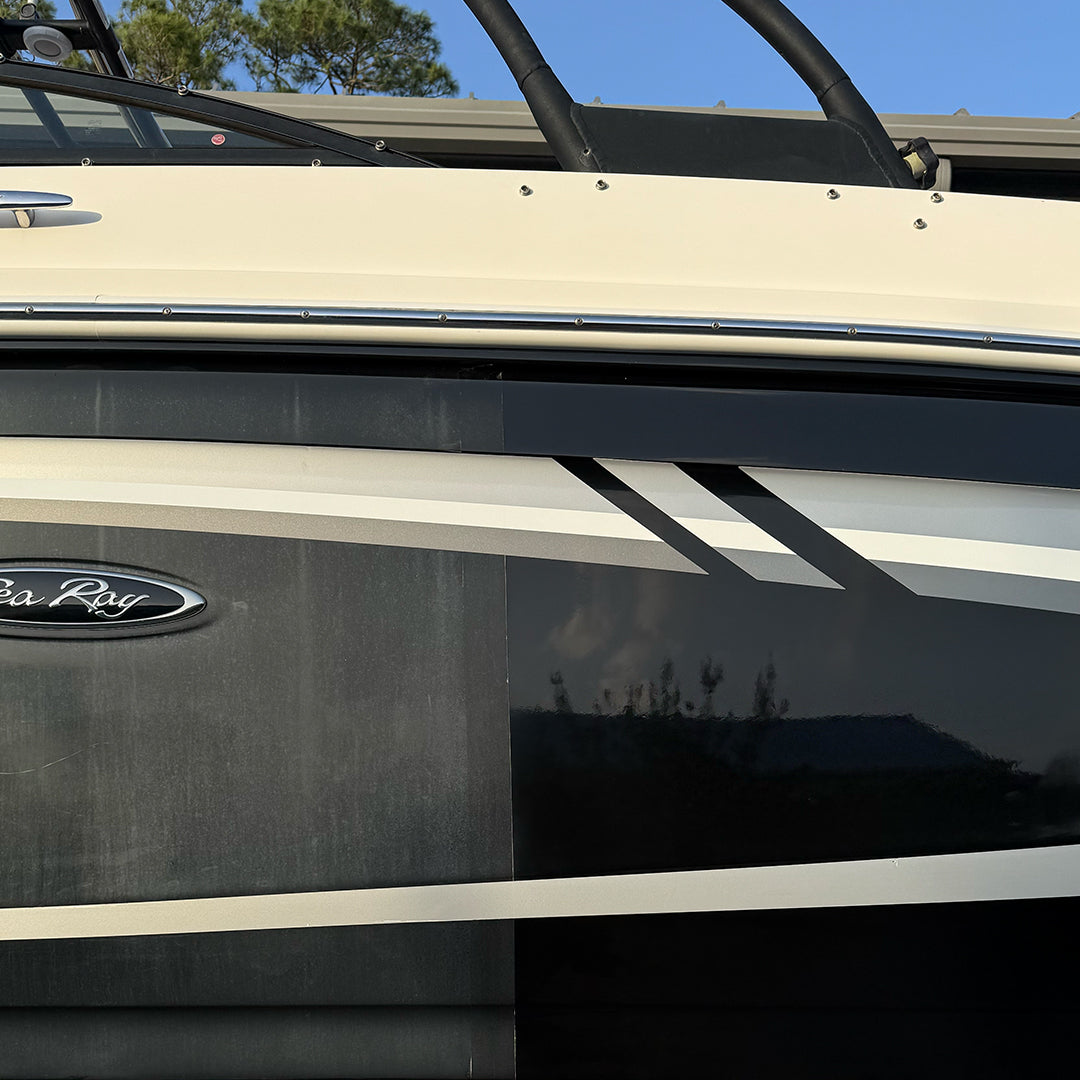In every industry—and in every era—there are two types of people: those who embrace change, and those who fight it.
We see this divide playing out today in technology, especially with the rise of Artificial Intelligence. Some professionals are harnessing AI to improve productivity, streamline workflows, and unlock creative potential. Others, threatened by the speed of innovation, rush to dismiss or discredit it—worried that machines will replace them, or that they’ll be forced to adapt to a world they no longer control.
The exact same phenomenon is happening in the world of marine detailing.
A New Era of Marine Surface Science
For decades, boat detailing was built around long, labor-intensive methods: hours of compounding, waxing, buffing, and reapplying—sometimes with outdated tools and formulas that were never designed for the realities of today’s boats or boaters.
Then came innovation. Advances in polymer science, ceramic sealants, and hybrid compounds began delivering real-world results with less effort, less waste, and more durability. Products like one-step oxidation removers, silicone-based protectants, and high-performance marine cleaners aren’t gimmicks—they're the result of chemistry catching up to the demands of boat owners.
Some professional detailers see this as an opportunity. They adopt these advanced solutions into their workflow, cut labor time, increased client satisfaction, and raised their margins. They become more efficient. More scalable. More respected. They're happy to share their methods and products and they're open to trying new ones.
Others, however, see only a threat. A shortcut. A disruption to the way things “have always been done.”
Fear vs. Progress
Just as some people fear AI will take their jobs, some legacy boat detailers fear new formulas will make their skills irrelevant. So they lash out—not with facts, but with fear-based messaging: calling modern products “snake oil” or dismissing them as “lazy man’s detailing"claiming there is only one way to do a job, when they, themselves know that every job is unique to some degree.
But the truth is clear: the marine community is waking up.
Boat owners today are more informed than ever. They’re seeing firsthand how much time, money, and effort can be saved with the right solutions. They understand that innovation doesn’t erase craftsmanship—it enhances it.
Just like a writer using AI to outline a story faster, a marine detailer using advanced compounds can deliver the same—if not better—results in a fraction of the time. It isn't cheating. It's evolution.
The Tide is Turning
Every disruptive innovation meets resistance. But history always favors those who adapt.
The marine detailing industry is undergoing a shift, and it's being driven by real-world performance. Boaters aren’t interested in rituals for the sake of tradition. They want their vessels clean, protected, and shining—without the overcharging, overcomplicating, or overselling.
The pros who embrace innovation will lead this new wave. The ones who don't? They'll be left behind, clinging to outdated methods in an industry that’s moved on without them.
Change isn't the enemy. Stagnation is.
Whether it’s AI or advanced marine chemistry, the future belongs to those willing to evolve. As for us, we’re not just following that future—we’re helping build it.



Share:
Why True Boat Care Requires Neutralizing After Water Spot Removal — And Why “Water Spot Remover + SiO₂ Sealant” Is Scientifically Misleading
When to Use Degreasers vs. pH-Neutral Soaps on Your Boat